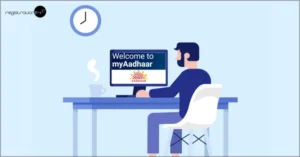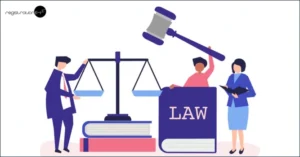Many people and businesses take loans for personal and professional reasons, respectively. However, at times of financial crisis, they may fail to repay the loan. An individual might fail to repay the loan after losing their job or due to a medical emergency. A business might fail to repay the loan because it faced some serious losses. However, it is important to remember that a loan is a liability and it must be repaid eventually. Failing to repay the loan can cause trouble to the borrower. In this blog post, we will discuss what happens if the borrower fails to repay the loan.
Consequences of failing to repay loan
One consequence of failing to repay your loan is that your credit score will decrease significantly. Due to the decrease in credit score, you will face trouble when you want to take another loan in future.
When you buy a product on EMI, you receive reminders from the lending institution when the EMI payment day is nearing. If your EMIs are not paid on time, then the bank might charge interest on the EMI as a penalty.
If you still fail to repay the amount, the bank might send a legal notice to you asking you to make the payments. If you do not make the payments despite this, ignoring the legal notice, then the bank might approach the court.
According to Section 138 of the Negotiable Instruments Act 1881, if a loan has not been repaid within 180 days, the lender can file a case against the borrower. In case you provided a collateral while applying for loan, the bank might use it to recover the loan amount by taking possession of the same.
Rights of Every Borrower
If the borrower has a genuine reason for not repaying the loan, then he has certain rights. Let’s check out the rights that every loan defaulter has:
Right to Notice
According to this right, the borrower must be given sufficient time by the lending bank before an action is taken to recover the outstanding amount or repossessing the asset given as collateral.
Right to be Treated with Politeness
Just because the borrower is unable to repay the loan amount does not give the lender the right to mistreat, blackmail, harass, humiliate or abuse them while trying to recover the loan.
Right to be Heard
The borrower has the right to raise objections to the repossession notice sent by the lending bank during notice period.
Right to Claim Leftover Balance
If the lender gets a high price for the collateral asset that has been repossessed by them, then the borrower can claim the leftover balance.
Right to Fair Value of Asset
If the lender has repossessed the provided collateral asset because the borrower is unable to repay loan, the lender can’t solely decide the asset value. The lender must send a fair value notice to the borrower telling them about the sale price upon evaluation.
What can you do if you cannot repay the loan due to genuine reasons?
When you fail to repay the loan, your lender will try to reach you through calls or messages. Don’t try to avoid them. You should tell the lender about your situation and ask them for extra time to repay the loan.
If you still cannot find any solution, then you must seek legal advice. It would be appropriate to consult with a lawyer experienced in debt collection and consumer law. They can tell you about your rights and options available.
Conclusion
Whenever loans are taken, the borrower must make sure that they can actually repay the loan amount without any problem. If they cannot repay the loan amount, they might get blacklisted by the bank and their credit score can fall significantly. Due to a low credit score, it will become really tough for the borrower to obtain any loan in future. People who are loan defaulters must have a genuine reason for not paying the loan. Such people should try to seek a solution from the lending institution, such as asking them for more time or requesting them to reduce interest. If they do not find any solution, then the borrower must seek legal advice.
If the lending institution does not receive the loan amount even after sending legal notice, they can go to the court by filing a case against the loan defaulter. Before taking a loan, the borrowers must look at all the pros and cons and their financial condition. The bigger the loan is, the tougher it is to repay it.






